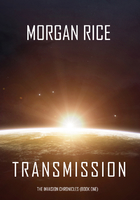Preface
This book describes what I consider to be the most rewarding pathways to success and satisfaction in a business career. I have drawn my conclusions from extensive interviews with men and women who have forged extraordinary business careers while focusing on their loftiest purposes and deepest convictions. Readers who are hoping to thrive in the business world will find useful guidance in the examples set by these men and women.
I could have used such guidance early in my own life. When I was young, I got two different kinds of career advice, pretty much at odds with one another. The first was idealistic: Aim high, do what you believe in (or what you love, mostly amounting to the same thing), always act in ways that you'll be proud of, and so on. The second kind was gritty and more "realistic," sometimes to the point of cynicism: nice guys finish last; you need to go along to get along; don't bite the hand that feeds you; remember what side of your bread the butter is on; if you want to really make it, you'll need to have sharp elbows and maybe be a bit of a thief. Memorable as they were to me, these conflicting maxims indicate the confusion that many young people feel when thinking about the "right" way to orient their careers. Nor does the confusion end by midcareer. Most ambitious people continue to look for the most fruitful directions to take throughout their entire working life, and many never stop feeling conflicts between their highest aspirations and the temptation to compromise those aspirations for the sake of survival and success.
This book describes a way of doing business that makes such conflicts and confusion unnecessary. The mode of doing business that I describe is highly successful, yet it requires no trade-offs of principle or conviction. Rather, men and women who operate in this manner gain their competitive edge by strategically employing their convictions. I call this edge "the moral advantage."
At a time when many people in business have become convinced that the road to success is paved with compromise, this message is urgent and necessary. Few people ever want to compromise their principles or standards: they do so because they believe they must. When they do, they compromise gradually, chipping away bit by bit at the dreams they had when they first decided on their life's work. And before long, like the doomed frog in a pot of water that heats up one degree at a time, their dreams gradually expire.
If selling out our deepest beliefs and principles were truly necessary for success, we might need to recognize that and somehow come to terms with it. But what if it is not only unnecessary but counterproductive? What if staying true to your highest purposes and convictions actually offers the surest route to the most satisfying and rewarding kind of success? I make that case here, and I chart this direction for those who have the courage to take this route.
One clarification at the outset: I do not mean by "the moral advantage" that those who act morally necessarily make the most money. If we create a two-by-two contingency table laying out all the possibilities, each box would have cases in it: crooks who makes lots of money, crooks who make little or no money, moral people who make little or no money, and moral people who make lots of money. All of these possibilities do in fact happen in the real world.
In this book, I am only interested in the fourth possibility— moral people who succeed—and even here, my interest goes beyond moneymaking per se. My interest, really, is in how people succeed in the broadest possible sense: how they can achieve their financial goals, build satisfying and enduring careers, make a positive difference in the world, and feel proud of the work they do and its contribution to society. All people, if they think that they have the choice, want this kind of total success. And of this I am sure: only people who take a moral approach, staying true to their convictions and highest aspirations, have careers that are fulfilling in every sense of the word. The examples that I have assembled in this book offer evidence that people in business do have this choice.
From 1998 to 2003, in collaboration with my colleagues Mihaly Csikszentmihalyi and Howard Gardner and our research teams at Stanford University, Harvard University, the University of Chicago, and the Claremont Graduate University, I interviewed forty-eight men and women who have had, or are having, success in the business world. Many of these men and women were founders or heads of large companies, others are leading smaller companies, and others still are now climbing up the corporate ladder or growing their own businesses. These business leaders have demonstrated excellence in entrepreneurial or managerial skills, and this excellence has been rewarded with recognition and financial success. As I demonstrate in this book, the mastery of business skills that these leaders have shown has been sustained by a sense of moral purpose and high ethical standards, and these have been key elements in their continued achievement and life satisfaction.
Throughout the book, I quote from many of the interviews that my colleagues and I conducted as a way of bringing life to my points. When I do so, I identify the subject with the position that he or she held at the time of the interview, or in a few cases, with the position that he or she held when experiencing the event referred to in the quotation. Because the business world is fluid, and because lives of busy people change, I am sure that many, if not most, of these interviewees will have moved on to other challenges by the time this book is published.
I began this project when CEOs were still held high in public esteem, seemingly a lifetime ago. By the time my research was completed, in early 2004, moral may indeed have become the last word in the English language that the public uses to describe its contemporary business leaders. Yet in the careers of the men and women whom I interviewed, I found a vast amount of "good work"—that is, work that is both excellent and ethical. One of my colleagues, Csikszentmihalyi, has written about how people in business, including some in our study, can use processes such as "flow" (Csikszentmihalyi's own widely known term for optimal motivation) to accomplish their good work.[1] Another colleague, Gardner, has written about the cognitive processes that leaders in business and other fields use to change directions when good work requires it.[2] My focus is how successful businesspeople use their convictions to build careers marked with distinction. My own conviction is that all men and women in business, whatever their age or status, can use these same moral strategies to put their careers on track for success and personal satisfaction.
In this book, I identify the key strategies of a moral approach to business and show exactly how these strategies can be used to promote personal and professional success. I examine the moral center of business in a more complete—and a more positive—manner than the standard "business ethics" approach that has been prevalent in business schools and corporate training seminars. I draw this contrast in Chapter 5. For now, I simply note that the compelling examples of the men and women whom I have interviewed made it easy for me to emphasize the positive as well as the prudential contributions of the moral advantage.
Whenever I use the word moral in my writings, some readers naturally ask me what I mean—or, to put it another way, to whose morality am I referring? I mean nothing fancy or controversial by the word; I am simply referring to the morality shared by people of goodwill everywhere. This includes aspirations to make the world a better place, to act decently, to care for one's family and one's neighbors, to live honorably, and to be kind, fair, honest, and responsible. As I have discussed in detail in my other books, these aspirations are lifelong and universal: even young children feel the tugs of empathy, compassion, and social obligation, and people all over the world resonate toward similar moral urges.[3] To be sure, there are contentious issues that divide people, but when it comes to the core moral goals and codes of human conduct, there is a broad consensus among all the world's great religions and civilized social orders. I draw on this widespread consensus whenever I write about moral commitment.
My study of the moral route to business success originally grew out of a broader exploration of how it is possible for any professional to acquire moral integrity and excel in one's work during times when the strongest incentives seem to be pushing him or her in the other direction. With my colleagues Gardner and Csikszentmihalyi, I have examined such good work in several professional fields, and two years ago we wrote an initial book on the topic, focusing on good work in science and journalism.[4] The present book on morally based success in business is the next step in my efforts to identify the pathways to leading a career that is both satisfying to the individual who pursues it and essential to the society that supports such careers.
Good work means work that is both successful and responsible, both masterful and moral. Too often in today's world, ambitious people feel pressured to cut corners or give up their loftiest goals to get ahead. But good work resists such compromises. It has a moral center. It always aims to fulfill a noble purpose. People who do the best work hold onto all their dreams and standards, knowing that this is the surest way to achieve real and lasting success.
Many individuals and funding agencies have supported the Good Work Project and its present extension into the business arena. First and foremost, the John Templeton Foundation supported the business study from which the main conclusions in this book are drawn. I would like to thank Arthur Schwartz of that foundation for his most gracious and helpful feedback on my work over the years. The William and Flora Hewlett Foundation was the original major funder of the broader Good Work Project, beginning with the domains of journalism and science. The Hewlett Foundation has continued to support the project generously, especially with respect to the area of philanthropy, and I would like to thank its president, Paul Brest, for his help, advice, and interest. In addition, the Atlantic Philanthropies has funded the philanthropy study generously, and I would like especially to thank Joel Fleishman for his gracious support. I discuss findings from our philanthropy research in Chapter 6. The Carnegie Corporation of New York and the Ford Foundation also have given the Good Work Project much appreciated support.
I also offer special thanks to the King family and their Thrive Foundation for generous support of my research as well as for many stimulating conversations and spiritual guidance. In a similar vein, I wish to thank Courtney Ross Holst for her early support of the Good Work Project through the Ross Family Foundation and for support of many other kinds, including a most welcome stay at the Ross Institute on Long Island, New York, where I had the opportunity to finish this manuscript.
An early version of sections of Chapter 2 was published in Optimize magazine in January 2002. Although I have since reformulated many of the notions that I expressed in that article, I appreciated the opportunity to try out some ideas that I was developing in that vigorous publication. At Stanford, my research assistants Barbara Wang Tolentino, Mollie Galloway, and Peter Osborn contributed greatly to the interviews and analyses reported in this book. Susan Verducci and Liza Hayes Percer helped with the analyses and offered highly intelligent feedback, and Tanya Rose, Kathy Davis, and Taru Fisher also provided invaluable support. I thank the staffs of my colleagues at Harvard, the University of Chicago, and the Claremont Graduate University for their assistance in the interview process and for many useful discussions about the project's results.
January 2004
Mattapoisett, Massachusetts
注释:
[1]M. Csikszentmihalyi, Good Business: Leadership, Flow, and the Making of Meaning, New York: Basic Books, 2003.
[2]H. Gardner, Changing Minds: The Art and Science of Changing Our Own and Other People's Minds, Cambridge, Mass.: Harvard Business School Press, 2004.
[3]W. Damon, Noble Purpose: The Joy of Living a Meaningful Life, Radnor, Penn.: Templeton Foundation Press, 2003; W. Damon, The Moral Child: Nurturing Children's Natural Moral Growth, New York: Free Press, 1990.
[4]H. Gardner, M. Csikszentmihalyi, and W. Damon, Good Work: When Excellence and Ethics Meet, New York: Basic Books, 2001.















